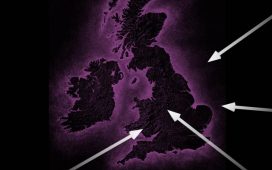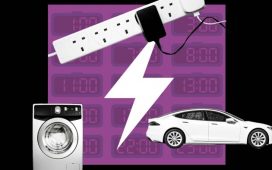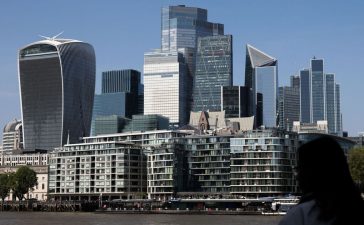When Shell decided to call it quits on its fledgling UK and German home retail energy business earlier this year, one rival was waiting in the wings.
Octopus Energy is paying an undisclosed sum for Shell’s division in a deal due to complete this year, transforming the London-based company into Britain’s second-largest retail supplier, behind British Gas, with 6.5mn customers.
The move is the latest step in the rapid ascent of Octopus since it was founded in 2016, backed with financing from London-based Octopus Investments and a helpful tailwind in the shift towards cleaner energy.
Greg Jackson, the company’s founder and chief executive, described the group’s early days as being like “a street fight” as it raced to build a large customer base.
Those scrappy instincts and the company’s customer service platform, Kraken, have led some to liken Octopus Energy to a tech start-up rather than a traditional British utility.
But like many tech-start ups, the company is yet to make an annual profit, despite now operating in 17 countries and making revenues last year of £4.2bn, supplying gas and electricity to homes but also generating wind power, leasing electric cars and installing heat pumps and solar panels.
Asked if investors should expect a profit soon, Jackson, a serial entrepreneur, said he was still focused on growth. “We are on track for what really matters to us, which is building a global business in electrification.
“We’re going to be investing in growth for a long time to come,” he said. “It’s a choice for us when we choose to deliver a profit.”
Octopus’s credentials as a disrupter have helped win the backing of investors including Generation Investment Management, chaired by former US vice-president Al Gore, but it may need to refine the start-up mentality now it serves more than a fifth of British households.
Octopus has provided stiff competition and is so far the biggest winner of a push by UK regulator Ofgem to shake up the dominance of the so-called Big Six suppliers over the past decade.
The effort has proved controversial. Dozens of Octopus’s competitors imploded when the energy crisis started in 2021 and then deepened the following year, exposing a host of undercapitalised and shoddily run operators.
Octopus has emerged strongest from the wreckage, taking over Bulb Energy in a controversial process last year, adding 1.5mn customers, as well as Avro Energy, which supplied more than 580,000 households.
It is now part of a new “Big Six” dominating the market — legacy suppliers British Gas, EDF, E. ON and Scottish Power, along with another one-time challenger, Ovo. Their combined 91 per cent market share is a greater share than large suppliers have held since at least 2017, according to data from Cornwall Insight.
Are households better off under this new version of the regime? The energy crisis has stifled competition over the past two years, with tariffs bunched around the price cap set by Ofgem.
Jackson defended the company’s role in the market, claiming it performed ahead of others on customer service and brought innovation.
“Previously you might have had a whole load of companies but there was no differentiation,” he said. “It was like going down a souk — a whole load of people selling identical stuff, each shouting louder than the other.”
That innovation includes taking part in a new scheme, run by National Grid, in which households were paid last winter to cut electricity usage at peak times if the operator feared it was running short.
The so-called “demand flexibility scheme” was introduced by National Grid as a tool to cope with exceptional circumstances last winter, when output from France’s nuclear power fleet was curtailed and there were concerns over gas supplies following Russia’s invasion of Ukraine.
The scheme prompted pictures on social media of families sitting in candlelight as they took part, but Jackson argues those that did in effect ended up with “free electricity” for the day. Such schemes are expected to play a bigger role in an energy system dominated by renewables, with supporters arguing they cut the amount of new infrastructure needed.
“We spent years working with National Grid to help them see the benefit and the possibility,” said Jackson.
“If you get a bumper crop of green energy, you get cheap energy,” he said. “If we don’t have a bumper crop, then we can pay you to use less at the times it’s in short supply.”
Octopus is building its business around managing and optimising the growth in electricity supply from renewable sources, for example by developing software and tariffs to optimise electric vehicle charging, an increasing point of competition in the market.
“With the current group of large suppliers, it’s a bit of a different landscape,” said Tom Goswell, head of consumer markets at Cornwall Insight. “There are examples where there has been a lot more innovation, and that has benefited consumers.”
Octopus’s rapid rise has not been without controversy: it was taken to the High Court by rivals including Scottish Power and British Gas-owner Centrica in November who argued the government had unfairly favoured the company in its deal to take on Bulb. Octopus said the case was “desperate”, before the deal was allowed to proceed.
A key test now will be the prospects for the Kraken and Kraken Flex software that Octopus licences to other suppliers to manage customer accounts and dispatch and use electricity from renewable assets.
The technology helped lure Generation Investment Management, which invested £311mn in Octopus Energy for a 9 per cent stake, as well as other shareholders including Japan’s Tokyo Gas and Australia’s Origin Energy.
Kraken now hosts about 30mn accounts and makes up about half of Octopus Energy’s enterprise value, with Jackson aiming to increase that to 100mn by 2027.
Yet while the Kraken business is profitable, Octopus is not: it reported a loss last year of £165.7mn. Jackson said the “underlying business was basically break-even” but it helped subsidise customer bills.
Britain was a “great place to start a business” he added, though it did less well on helping companies grow.
“I think Britain provides a less benign environment for creating the Googles and Amazons,” he said. “You get laughed at if you say that in Britain — whereas in America you raise investment.”
This article has been updated to say that Octopus was backed with financing from London-based Octopus Investments, rather then venture capitalists.













